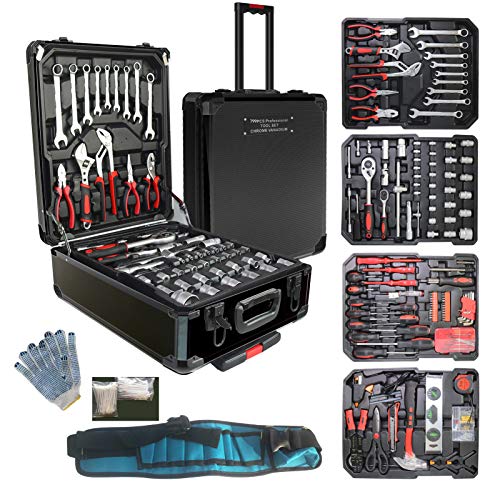CatCaretaker:
Sorry for what you've gone thru.

I've also had some truly terrible rental experiences, which ultimately drove me into this lifestyle.
In my mid-teens to late 20s, I was in the youth then adult arms of the Air Reserves, trained mostly for Search and Rescue, which included
extensive survival training including regular
field exercises.
I am
not an expert in long term survival.
I merely have both training and experience with
short term (3-7 days) situations.
Books are ok, but they will not not show you how folks make
mistakes.
There's tons of YT vids, almost all of them done by hobbyists who are mimicking each other & have no experience at all.
There's lots of cable TV shows, all aimed at making things glitzy, often with very bad advice, and unrealistic portrayals of how complex/lengthy tasks are/take.
One example:
In one show set in Siberia, the entertainer demonstrated how to build a snow shelter, and claimed it took him
one hour.
In my most extensive survival course (one semester with one day per week hands on), a group of
four took
two hours to build the same shelter (i.e.
eight person hours). I was the only female in the group, and one of the guys was the strongest guy in the program. We all were young and had to pass rigorous fitness tests.
There's
exactly one TV show that I
highly recommend:
Les Stroud's "
Survivorman".
He goes
alone (does his own camera work) into remote areas for a one week period, and shows you his
real experiments, including his
mistakes.
He gives very
authentic times and shows how complex & difficult some things are. He even discusses how he's feeling. He's stunningly honest and thoughtful.

Your Library will probably have the DVDs. I recommend skipping the episodes set in places irrelevant to you (e.g. Baffin Island, tropical regions).
If you don't have a DVD player, see if your Library has any that you can use on site. He's well worth the effort & time.

There's two
real world, almost always
free ways you can get some
gentle hands on
beginner level experience/training (these aren't "survival" courses - you should get
comfortable in Nature, before you try it full-time).
One I have extensive experience with, the other only second hand...
Bird watching club trips:
Every decent sized city/town will have a local bird club, with regular trips, and
supportive environments for beginners.
Most will loan you binoculars.
Trips usually meet at convenient urban locations where it's safe to leave your vehicle, then everyone car pools to the target locations.
In general, birders car pool to get the most eyes possible into each vehicle, which increases the likelihood of spotting cool birds.
This will give you the opportunity to spend time on
backcountry roads, often very rustic.
It will teach you
observation skills, and greatly increase your "
situational awareness".
You'll get to
test out your on-person
gear, in a safe environment (stuff like clothing, boots, even how much food & water to carry).
You'll learn from the equipment that others use (really serious birders are
gear geeks, and generally have superbly well equipped vehicles - they can stay out for days at a time, if they get on a roll, particularly during migration seasons).
Most birders are very
down to earth, gentle & curious people, from a wide range of backgrounds, and are
relaxing to be around.

We're (mostly) very welcoming of newcomers, and
want to help you learn.
Most clubs have a very few twerps, but they're easy to spot and avoid.
The very first trip I ever went on was an Audubon all-day Spring migration trip (it started pre-dawn and some of the group continued after dark).
I didn't have binoculars, and didn't drive, so I just called up the club phone number, and they loaned me binoculars & hooked me up with a volunteer who picked me up at my home. He was a retired Marine, and we carpooled all day. It was an intense blast.

I was exhausted long before him, and he was disappointed I didn't want to go Owling with the hardcore folks.

After that, I learned to check whether it was a "beginner friendly" trip.
Most are only half a day, though they usually recommend bringing lunch, just in case.
When I start with a new club (i.e. don't know anybody), I get to the car-pooling location, take a look around, and target the most kind scruffy/nerf-herder appearing member, usually female.

Are you still in Atlanta?
They have an Audubon club, with regular trips, and their site says they welcome newcomers & will loan them binoculars.

You don't have to be a bird fanatic, just
curious about Nature in general.
Most birders have wide ranging interests & Nature knowledge.
If you decide to try this, feel free to say you're more oriented towards getting some experience in Nature (it's ok to be vague), and someone online recommended this.
Wild edibles / foraging clubs / courses:
I've never been on any of these.
Reliable friends have, and other reliable friends (birders) have taught these.
They sound like a safe and useful way to learn.
If you go on any, please report back to us.

Try web searching with terms like:
"Atlanta wild edibles club"
(That assumes you're still in Atlanta.)
Sorry it's taken me so long to respond.
Good luck with your efforts!










































































